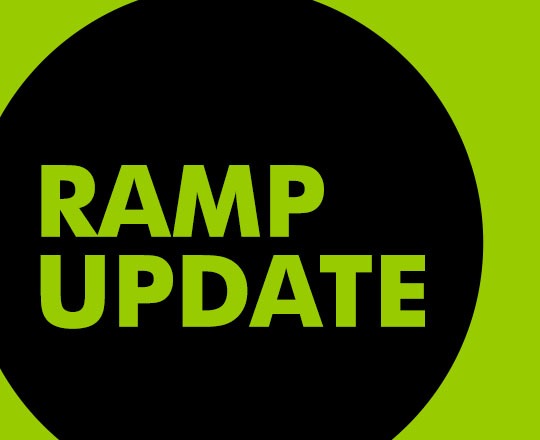VA’s Rapid Appeals Modernization Program (RAMP) Open to All Veterans on April 1, 2018

Note: On February 19, 2019 the Veterans Appeals Improvement and Modernization Act (AMA) was officially implemented, thus ending the Rapid Appeals Modernization program. The most up-to-date information on the AMA can be found on our page: Veterans’ Appeals Reform.
Beginning on April 1, 2018, VA will allow any veteran with a pending appeal to opt into its Rapid Appeals Modernization Program (RAMP). This is a major pivot from VA’s original enrollment strategy, in which veterans had to receive a RAMP invitation letter before opting into the pilot program.
The Rapid Appeals Modernization Program (RAMP) is a pilot program designed by the Department of Veterans Affairs (VA) to test the new appeals system scheduled to launch in February 2019. Signed into law in August, the Veterans Appeals Improvement and Modernization Act (VAIMA) of 2017 required the creation of a new appeals process that would allow veterans to choose one of three appeal “lanes.” VA refers to the pre-VAIMA appeals process as the Legacy Appeals system.
As of March 14, 2018, 15,645 individuals have opted into RAMP from the legacy appeals process. Of those cases pending in RAMP, 64.6% have opted into the Higher Level Review lane, and 35.4% have opted into the Supplemental Claim lane. Total RAMP payments made have been $15.5 million as of May 14, 2018.
In a presentation last week, however, VA indicated it will be quietly abandoning the invitation-only plan for RAMP. At the Waco, Texas VA Regional Office, officials said that, starting April 1, 2018, any veteran with a currently pending appeal will be able to opt into RAMP by using a publicly available RAMP Opt-in Election form and bar code cover sheet.
Am I eligible for RAMP? Is my appeal currently pending?
You are eligible for RAMP if you have a disability compensation appeal pending (i.e. waiting for a decision) in one of the following legacy appeal stages:
- Notice of Disagreement (NOD)
- Form 9, Appeal to Board of Veterans’ Appeals
- Certified to the Board but not yet activated for a Board decision
- Remand from the Board to VBA
Previously, you would have also had to receive a RAMP letter (in addition to being in one of the appeal stages above). Now, however, any veteran currently in the legacy appeals process should be able to opt into RAMP any time after April 1, 2018.
If I opt in, will I be able to appeal my RAMP decision?
With reports of a 57% grant rate and an average wait time of just 48 days (as of March 1, 2018), the Rapid Appeals Modernization Program (RAMP) is an appealing choice to some veterans. But many veterans and veterans’ advocates have concerns about what will happen if a veteran disagrees with a decision they receive in RAMP. Will the veteran be able to appeal to another lane? Isn’t the “Board Lane” (also referred to as the “NOD Lane”) closed to RAMP participants until February 2019?
Veterans will be able to appeal to another lane if they disagree with their initial RAMP decision. If you receive an unfavorable decision within the RAMP system, you will have a one year appeal period to take your case to another RAMP lane (the Supplemental Claim Lane, the Higher-Level Review Lane, or the Board/NOD Lane), and your effective date will be protected.
The Board of Veterans’ Appeals (BVA, or the Board) will begin deciding RAMP appeals in October 2018. Previously, VA planned to open only the Supplemental Claim Lane and the Higher-Level Review Lane to RAMP participants, leaving any appeals to the Board until VAIMA (the new appeals system) was fully implemented in February 2019. But at a March 2018 conference for veterans’ advocates, Chairman of the Board Cheryl Mason announced that the Board will open to RAMP participants in October of this year.
The new appeals system calls for three dockets at the Board, separate from the legacy appeals docket currently in operation. Veterans who appeal a RAMP decision will be first in line in the Board’s new dockets.
About the Author
Share this Post
